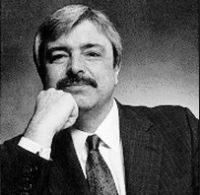










Dennis Hayes made lots of modems. He was the first and he was the best. Dennis Hayes was one of the giants. His company, Hayes Microcomputer Products Inc., dominated the market for PC modems in the 1980s and early 1990's when he introduced the Hayes command set. A modem, short for modulator-demodulator, would turn data into tones, then send those tones along the telephone line, so an analog system could mimic a digital one.
Early Life and his Research Career
Born in Spartanburg, South Carolina in 1950, Hayes originally considered an alternative to cable TV, ADSL offered 1.5 Mbps downloads and 384 kbps uploads, while sharing the line with your phone. But by the time ADSL became a player, Hayes was bankrupt, gone, out of business by 1998. The moral: don’t ever trust a Bell company. Don’t bet on a Bell company fulfilling its promises. Ever. But that’s just what the USA is doing, right now. Once again the Bell companies have made promises. FIOS, Lightspeed. They have made these promises for 10 years. They have reneged on all their earlier promises, and before they meet these (or claim to meet them) they demand, not only a monopoly on their lines, but control of the Internet itself.
As modems approached the 64,000 bit/second speed level, in the early 1990s, Hayes wanted to move data faster. But Dennis Hayes was deeply involved in a new project he called ISDN, an all-digital system. It was faster than modems and it was very cool. But in order to get to ISDN, Hayes needed the cooperation of the Bell companies. They promised cooperation, time and again. Like leaches with dirty laundry, the Bell companies lied and cheated Dennis Hayes. And this was an American tragedy. Yes, they said they were committed to Hayes project. But Dennis waited and waited. He bet the company on ISDN.
The PC Modem, is largely responsible for the global landscape of business and the social interactions that we know today as the World Wide Web.
The Hayes modem gave us an easy to use, affordable way to access the internet that truly became the on-ramp to the super information highway for billions of people.His Invention, through technology has made it possible for us to connect to one another and has surely touched all of our lives in one way or another.Not only did Mr. Dennis C. Hayes invent this modem but he also developed the concept, took the product to market, built the Hayes Microcomputer company from the ground up gaining world wide distribution & making billions of dollars in sales & revenue.
Later after successfully guiding the company through a merger that resulted in a new, publicly-owned Hayes Corporation, he retired as Chairman in late 1998 to pursue strategic management consulting endeavors & business advisory as Chairman of Virtual Resources, LLC. Year to date, Mr. Dennis C. Hayes has since served as a Board Member of several public & private companies.
Even in today's fast paced World Wide Web he remains an important & influential member of the Online internet community he helped build. And, as Chairman of the U.S. Internet Industry Association, Mr. Dennis C. Hayes, helps shape public policy, too.
As a Consultant, his real world experience establishing & energizing Advisory Boards / Board of Directors for growing companies, has been able to help his clients prepare for & execute plans that has positioned them to achieve growth & profits faster than the market around them; resulting in significantly increased shareholder value.
As an Alumni of the Georgia Institute of Technology, he served on the National Advisory Board and helped create the College of Computing. And he is currently in the process of considering taking a more active part in helping educate our future leaders of tomorrow as a lecturer or professor at a prestigious university.
His valued opinion, which is world renowned, has had him as an expert witness on cases for technology, Intellectual property & licensing issues.As one can imagine, he is also a much sought after Public Speaker and has been asked to speak on a wide array of topics at management meetings, conferences & organizational events. Including in front of the United States Congress.